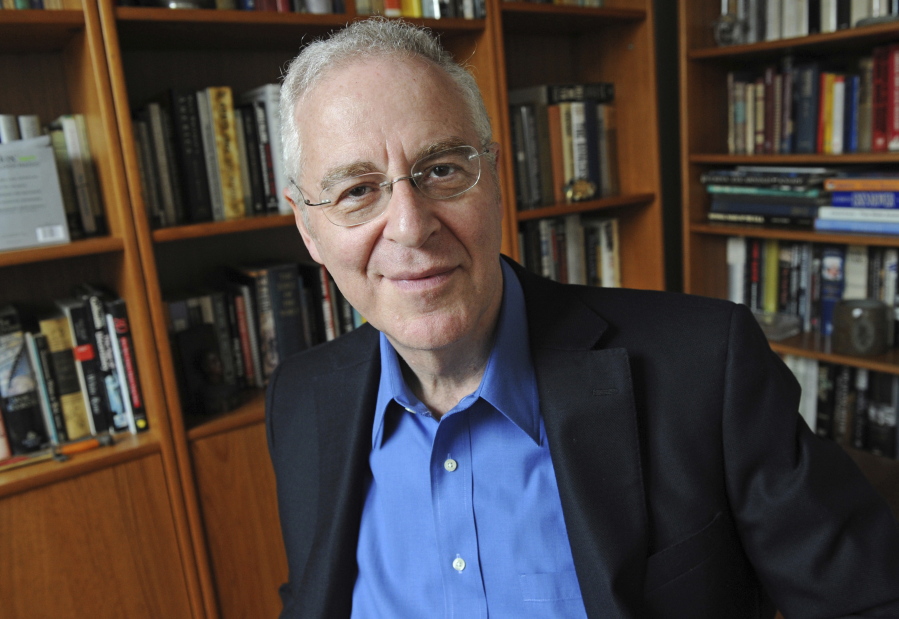As he began work on what became a thousand-page biography of Ulysses S. Grant, Ron Chernow knew he was joining a very old argument.
“I wanted to retire three chief myths about Grant: that he was a crude and brutal general; that he was a hopeless alcoholic who somehow stumbled through the Civil War in a drunken stupor; and that he oversaw a failed presidency marked by corruption and nepotism,” says Chernow, whose newly released “Grant” is a follow-up to his Pulitzer Prize-winning “George Washington” and to the Alexander Hamilton biography that became the unlikely source of a phenomenon — Lin-Manuel Miranda’s musical “Hamilton.”
Chernow sees Grant as a continuation of the military hero-political leader that Washington embodied, but one with a more troubled reputation. For decades Grant was one of the country’s most disparaged presidents. A 1948 poll conducted by Harvard scholar Arthur Schlesinger Sr. ranked Grant next to last, just above Warren Harding. As recently as 2002, a Siena College poll placed Grant in the bottom 10, just above William Henry Harrison, who died after a month in office. A National Park Service training supervisor, Liam Strain, says that visitors to Grant’s Tomb in Manhattan often arrive with preconceptions of Grant as a drunk who only won the war because the Union had more soldiers.
Even the White House website disparages Grant, a two-term president who served from 1869-77. Capsule biographies, some dating back to the 1960s, of all the presidents appear on www.whitehouse.gov. While many are treated favorably to the point of hagiography, Grant is identified as a chief executive who “provided neither vigor nor reform. Looking to Congress for direction, he seemed bewildered.”
But his standing has improved in recent years, thanks to biographies by Jean Edward Smith and H.W. Brands, among others, and to the extensive scholarship of Brooks Simpson, a professor at Arizona State University. The Ohio-born Grant has been widely praised as a peerless military leader and strategist, one still studied at his alma mater West Point, and as a determined defender of rights for blacks, whether welcoming them as soldiers in the Union army or using military force to counteract the violent resistance of the Ku Klux Klan and other white supremacists to Reconstruction.
During a recent appearance to promote his book “We Were Eight Years in Power,” Ta-Nehisi Coates said that he had been reading “Grant,” which he called “exceptional.” Coates said he was struck by the story of a financially struggling Grant, whose in-laws were slaveholders, emancipating a slave two years before the Civil War.
“Enslaved black people were worth a lot,” said Coates, who called Grant’s decision “the singularly bravest act ever committed by a president in his private life.”
Earlier this year, a C-Span survey gave Grant a respectable rank of 22 out of 43 presidents.
Chernow and many others contend that Grant was the victim of the so-called Dunning School of History, named for Columbia University professor William Archibald Dunning. Beginning at the turn of the 20th century, Dunning advocates claimed that Reconstruction was a disastrous experiment that proved blacks were unfit for equality in civic life. The Dunning mentality was most famously captured in D.W. Griffith’s “The Birth of a Nation,” the 1915 silent epic that exalted the KKK and demonized blacks.
“The crux of the matter is if you consider Reconstruction a disaster then Grant becomes a symbol of that,” says historian Eric Foner, whose acclaimed 1988 book “Reconstruction” is one of the defining works on the post-Civil War era. “If you see Reconstruction as I do, and as most historians do, as flawed, but honorable and that it’s very unfortunate it didn’t succeed, then Grant looks better.”
The Dunning School has been discredited over the past half-century, but criticism of Grant remains.
“I tried to argue in the book that as a president Grant made many small mistakes, but he got the big things right,” Chernow says. “And the big things had do with the legacy of the Civil War — fighting to preserve the union and to abolish the legacy of slavery.”



